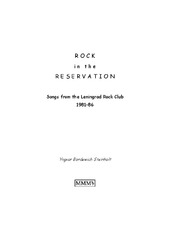| dc.contributor.advisor | Borge, Steffen | |
| dc.contributor.author | Larsen, Joakim Berg | |
| dc.date.accessioned | 2017-12-06T07:54:15Z | |
| dc.date.available | 2017-12-06T07:54:15Z | |
| dc.date.issued | 2017-11-01 | |
| dc.description.abstract | The thesis aims to refute claims from Peter Kivy that so-called ““Absolute music,” then, as defined, is pure instrumental music without text, title, program, dramatic setting, or any other extra-musical apparatus. It is music, as defined, without representational, narrative, semantic or other extra-musical content”. Or, that music is a “quasi-syntactical structure of sound understandable solely in musical terms and having no semantic or representational content, no meaning, making reference to nothing beyond itself”. To this end, it also questions the viability of the term absolute music, and examines the connection between music and the emotions, to see if meaning in music and emotions are connected, and what aesthetic relevance (if any) emotions have in music. Through discussions of Jenefer Robinson’s narrativism, James O. Young’s book Critique of Pure Music and Aaron Ridley’s notion of paraphrase it is argued that Kivy’s above claims are refuted. Robinson and Young show us that music can have both a kind of narrative and illustrative content, while Ridley’s notion of paraphrase helps us understand the nature of such content. In conclusion I argue that neither a purely formalist view of music, nor Kivy’s enhanced version are plausible, and that we would be wise considering alternatives. I will also provide a sketch for such an alternative, based largely on the discussion of Robinson, Young and Ridley. | en_US |
| dc.identifier.uri | https://hdl.handle.net/10037/11806 | |
| dc.language.iso | eng | en_US |
| dc.publisher | UiT Norges arktiske universitet | en_US |
| dc.publisher | UiT The Arctic University of Norway | en_US |
| dc.rights.accessRights | openAccess | en_US |
| dc.rights.holder | Copyright 2017 The Author(s) | |
| dc.rights.uri | https://creativecommons.org/licenses/by-nc-sa/3.0 | en_US |
| dc.rights | Attribution-NonCommercial-ShareAlike 3.0 Unported (CC BY-NC-SA 3.0) | en_US |
| dc.subject.courseID | FIL-3900 | |
| dc.subject | Philosophy of Music | en_US |
| dc.subject | Music and Meaning | en_US |
| dc.subject | Absolute Music | en_US |
| dc.subject | Music and Emotion | en_US |
| dc.subject | VDP::Humaniora: 000::Musikkvitenskap: 110::Musikkteori: 112 | en_US |
| dc.subject | VDP::Humaniora: 000::Filosofiske fag: 160::Filosofi: 161 | en_US |
| dc.subject | VDP::Humaniora: 000::Filosofiske fag: 160::Andre filosofiske fag: 169 | en_US |
| dc.subject | VDP::Humanities: 000::Musicology: 110::Music theory: 112 | en_US |
| dc.subject | VDP::Humanities: 000::Philosophical disciplines: 160::Philosophy: 161 | en_US |
| dc.subject | VDP::Humanities: 000::Philosophical disciplines: 160::Other philosophical disciplines: 169 | en_US |
| dc.title | Conceptions of meaning in music. On the possibility of meaning in absolute music | en_US |
| dc.type | Master thesis | en_US |
| dc.type | Mastergradsoppgave | en_US |


 English
English norsk
norsk



